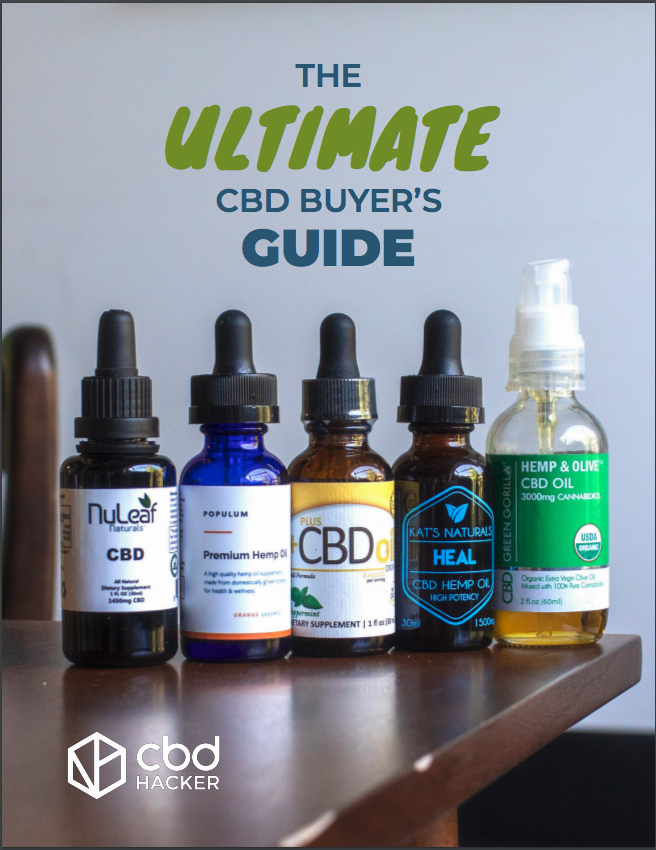In this week’s top CBD story, the FDA memo recommending that CBD be categorized as a Schedule V controlled substance was made public. And it contained a bombshell statement from the FDA.
In the memo, the agency said that CBD’s lack of potential for abuse means that it could be removed from control under the Controlled Substances Act (CSA).
The only obstacle? The “DEA has asserted that the United States would not be able to keep its obligations under the 1961 Single Convention on Narcotic Drugs if CBD were decontrolled under the CSA.”
The memo goes on to say that if our international treaty obligations were to change so that they do not require the control of CBD, the recommendation to place it in Schedule V will need to be promptly revisited.
The chemical structure of CBD wasn’t even defined until 1963, and research into its medical properties began decades later. So, is it time for the international community to revisit the United Nations’ 1961 treaty?
Also new this week: we’ve released CBD Hacker’s Top 15 CBD Oils for Dogs, Cats, and Other Pets.
To choose the best of the best, we sent samples of every product out for third-party lab testing, and took a close look at quality, value, and customer experience.
Bolstering the FDA’s assertion that CBD could be decontrolled, a new study in the journal Epilepsy & Behavior examined CBD’s potential for abuse.
In this randomized, double-blind, double-dummy, placebo- and active-controlled trial, recreational drug users received a single dose of Epidiolex. This newly FDA-approved drug is a very concentrated and purified form of plant-based CBD.
The study evaluated a variety of measures for abuse potential, including:
- How much the subjects liked the drug (or placebo) they were given
- Whether they wanted to take it again
- Whether they felt high or stoned
- Alertness or drowsiness
- Whether they experienced negative effects
The results? Overall, the researchers found “that CBD is associated with minimal abuse potential and low cognitive/psychomotor impairment.”
While they noted a “weak signal for euphoria” at very high doses (up to 4,500 mg) of CBD, these were so close to placebo that the researchers determined the risk for abuse is very low.
In Georgia, a woman says that she failed a pre-employment drug test after taking CBD oil. Her doctor had recommended CBD for pain and anxiety, and she’d only been using it for two weeks before failing the test. The product she was using was a full-spectrum oil, but it did not list any THC on the label.
Another new study — this one in the journal Anticancer Research — looked at the effects of synthetic CBD on cancer patients.
This UK study followed 119 cancer patients who given synthetic, pharmaceutical-grade CBD. And they found examples of patients with brain tumors, prostate cancer, breast cancer, esophageal cancer and a lymphoma who clearly improved using CBD.
In one case, a five-year-old boy with a rare type of brain tumor had already gone through two surgeries, chemotherapy and radiotherapy. CBD was a treatment of last resort, but after several months on CBD, his tumor decreased by about 60 percent.
The researchers took pains to note that patients who used over-the-counter CBD did not see the same benefits as those who used the pharmaceutical-grade product.
NuLeaf Naturals is launching a program to help cannabis businesses owned by people of color. The project, dubbed The NuLeaf Project, will offer grants, mentorship, education and professional development for qualifying businesses in the Portland, Oregon area.
“We are unapologetically about the work of building intergenerational wealth for people of color through the legal cannabis industry,” says the project’s website, “NuLeaf’s work is specifically designed to address the capital, education, and connection hurdles that people of color face when entering the cannabis industry.”
And a new study of a CBD-derived treatment for multiple sclerosis (MS) has begun enrolling participants.
Emerald Health Pharmaceuticals announced the randomized, double-blind, and placebo-controlled study of EHP-101, a CBD-derived drug. The trial will examine how the drug affects healthy people in Australia in order to evaluate its safety.
The FDA has also granted EHP-101 orphan drug status for the potential treatment of scleroderma.







